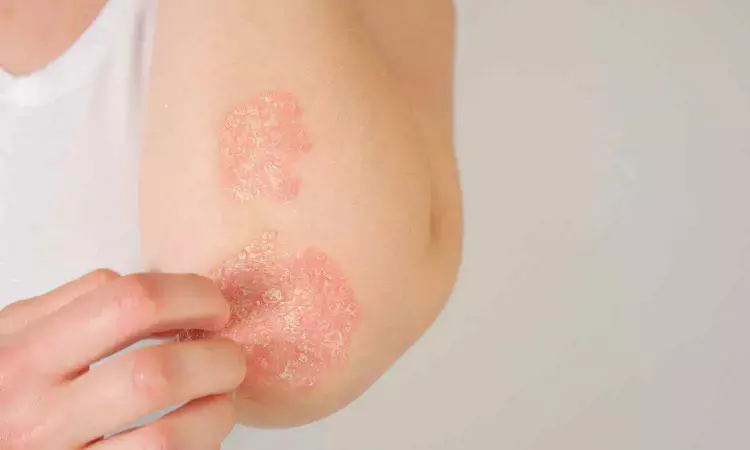- Home
- Medical news & Guidelines
- Anesthesiology
- Cardiology and CTVS
- Critical Care
- Dentistry
- Dermatology
- Diabetes and Endocrinology
- ENT
- Gastroenterology
- Medicine
- Nephrology
- Neurology
- Obstretics-Gynaecology
- Oncology
- Ophthalmology
- Orthopaedics
- Pediatrics-Neonatology
- Psychiatry
- Pulmonology
- Radiology
- Surgery
- Urology
- Laboratory Medicine
- Diet
- Nursing
- Paramedical
- Physiotherapy
- Health news
- Fact Check
- Bone Health Fact Check
- Brain Health Fact Check
- Cancer Related Fact Check
- Child Care Fact Check
- Dental and oral health fact check
- Diabetes and metabolic health fact check
- Diet and Nutrition Fact Check
- Eye and ENT Care Fact Check
- Fitness fact check
- Gut health fact check
- Heart health fact check
- Kidney health fact check
- Medical education fact check
- Men's health fact check
- Respiratory fact check
- Skin and hair care fact check
- Vaccine and Immunization fact check
- Women's health fact check
- AYUSH
- State News
- Andaman and Nicobar Islands
- Andhra Pradesh
- Arunachal Pradesh
- Assam
- Bihar
- Chandigarh
- Chattisgarh
- Dadra and Nagar Haveli
- Daman and Diu
- Delhi
- Goa
- Gujarat
- Haryana
- Himachal Pradesh
- Jammu & Kashmir
- Jharkhand
- Karnataka
- Kerala
- Ladakh
- Lakshadweep
- Madhya Pradesh
- Maharashtra
- Manipur
- Meghalaya
- Mizoram
- Nagaland
- Odisha
- Puducherry
- Punjab
- Rajasthan
- Sikkim
- Tamil Nadu
- Telangana
- Tripura
- Uttar Pradesh
- Uttrakhand
- West Bengal
- Medical Education
- Industry
High Sodium Intake Linked to Increased Risk of Psoriasis, finds study

Researchers have found in a new study that Higher dietary sodium consumption is associated with an increased likelihood of developing psoriasis. Further findings suggest that reducing sodium intake may offer potential benefits for individuals at risk of or affected by psoriasis.
Sodium is stored in the skin and may trigger or perpetuate autoimmune diseases including psoriasis. One previous study found skin sodium was elevated in a small group of patients with severe psoriasis compared to healthy controls, but the relationship between sodium intake and psoriasis within a population has not been investigated.
A study was done to identify whether dietary sodium intake is associated with psoriasis and whether there are subgroups of individuals more likely to have salt-sensitive psoriasis. This cross-sectional, population-based study evaluated a UK Biobank cohort of nearly 500,000 participants in the 2006–2010 period and a US-based National Health and Nutrition Examination Survey (NHANES) validation cohort of 2393 participants in the 2003–2004 period. Dietary sodium intake, the exposure, was estimated using urine biomarkers and the previously validated INTERSALT equation.
Psoriasis outcome was assessed by the presence of ICD-10 code L40. Results: In the UK Biobank, of the 468,913 included participants, 54% were female and the mean (standard deviation) age at recruitment was 57 (8) years. Multivariable logistic regression models revealed that every 1 g increase in estimated 24-h urine sodium was associated with an 18% increase in odds of psoriasis after adjustment for sex, age, race/ethnicity, education and socioeconomic status.
There was no consistent evidence of large effect modification by age, sex, race/ethnicity, polygenic risk score for psoriasis or those with a history of hypertension, chronic renal failure or type 2 diabetes mellitus. In NHANES, each additional gram of self-reported dietary sodium intake was also associated with increased odds of examination-confirmed psoriasis. Increased sodium intake was associated with psoriasis in two population-based cohorts; future clinical trials could investigate whether decreasing sodium intake improves psoriasis.
Reference:
Chattopadhyay A, Ye M, Chiang B, Halezeroglu Y, Van Blarigan EL, Liao W, et al. Increased sodium consumption is associated with psoriasis: A population-based cohort study. J Eur Acad Dermatol Venereol. 2025; 00: 1–9. https://doi.org/10.1111/jdv.20540
Dr. Shravani Dali has completed her BDS from Pravara institute of medical sciences, loni. Following which she extensively worked in the healthcare sector for 2+ years. She has been actively involved in writing blogs in field of health and wellness. Currently she is pursuing her Masters of public health-health administration from Tata institute of social sciences. She can be contacted at editorial@medicaldialogues.in.
Dr Kamal Kant Kohli-MBBS, DTCD- a chest specialist with more than 30 years of practice and a flair for writing clinical articles, Dr Kamal Kant Kohli joined Medical Dialogues as a Chief Editor of Medical News. Besides writing articles, as an editor, he proofreads and verifies all the medical content published on Medical Dialogues including those coming from journals, studies,medical conferences,guidelines etc. Email: drkohli@medicaldialogues.in. Contact no. 011-43720751


